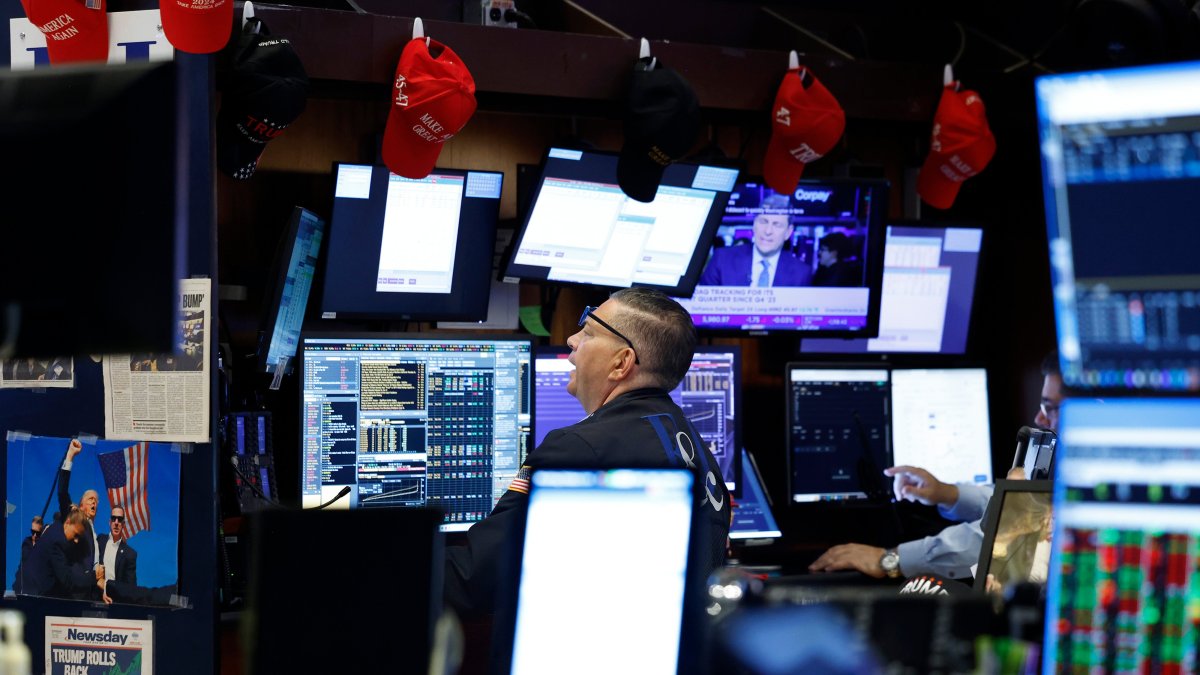The US stock market is surging despite economic and geopolitical uncertainty as Wall Street trumpets President Trump’s patriotic drive to put “America first”.
The S&P 500 index of America’s biggest listed companies touched a new record on the eve of the Independence Day holiday — its seventh record close this year.
The Nasdaq Composite index, which is heavily weighted towards the tech sector, also reached an all-time high on Thursday, marking three consecutive weeks of gains and its fourth record close of 2025.
Analysts say that the return of “American exceptionalism” — the belief that the US is distinct from other nations in terms of its economic resilience — and a “patriotic” outlook on tariff policies are behind the surge.
Investors are boosterish about US stocks even as the dollar has fallen about 9 per cent this year against major world currencies, in part because of worries about the US debt burden.
Tom Essaye, founder of the Sevens Report, a market analysis firm, said he believed it was a “vibes market” driven in part by “fomo”, or “fear of missing out”, after investors got “much too negative in April”.
He said: “If all I did was hand you a fact sheet of everything that has occurred and asked you, what has the stock market done, you would almost certainly tell me it’s down, right?
“You have tariffs at multi-day highs. You have economic growth metrics that are clearly losing momentum. You have some cautious commentary on the consumer, you have high geopolitical tensions. Everything would tell you the stock market is down, but it is not down, and it’s because the market and investors do not view any of these as derailing the US economy. They aren’t bad enough at this point.”
Investors have grown more optimistic that Trump’s economic policy will not derail the US economy, he added.
President Trump introduced market turmoil in recent months with his global tariffs
EVELYN HOCKSTEIN/REUTERS
“You can put 30 per cent tariffs on paper clips from China. That’s not going to derail the economy. As long as iPhones are exempted, computers are exempted, semiconductors are exempted … I think that’s kind of the patriotism that you’re talking about: perhaps some of this might actually work.”
The stock market has had a remarkable recovery from the rout triggered by Trump in early April when he unveiled plans for sweeping tariffs on America’s trading partners and prompted Wall Street economists to warn of an increased risk of a US recession this year.
Confidence began to return on April 9, when Trump announced a three-month delay on all “reciprocal” tariffs, with the exception of China. Since then, the S&P 500 has risen 26 per cent.
The recent rally has helped the S&P 500’s pace to overtake Europe’s Stoxx 600, with the US stock index up 7 per cent in the year to date, versus 6.5 per cent for the Stoxx 600.
The three-month tariff pause is due to end on July 9. However, US equities investors appear to have shrugged off worries about the impact of trade policy on US businesses and the economy.
• Trump brings rebels in line to pass One Big Beautiful Bill
“There’s this relentless bid into US equities,” said Adam Turnquist, chief technical strategist for LPL Financial.
“I’m not going to make a call that American exceptionalism will last for ever, but it does boil down to … money goes where it’s treated best. And we had international stocks outperforming by a wide margin in the first part of this year, but that started to taper off as the rebound in Big Tech has changed that narrative a little bit.”
The worst-case-scenario concerns over the impact of tariffs on the US economy have yet to materialise. US inflation rose less than expected to 2.4 per cent in May, while the unemployment rate fell unexpectedly in June from 4.2 to 4.1 per cent.
Meanwhile, investors are upping bets that the US will continue to dominate technology and innovation.
Stuart Kaiser, Citi’s head of US equity trading strategy, said the rise of US stocks had been partially driven by the results of AI-leading tech companies so far this year, which have doubled down on their commitments to spending tens of billions of dollars on artificial intelligence infrastructure.
“That pushed people globally, I think, back into this AI trade,” he said. “And the fact is, you can’t own AI in any reasonable way without owning US stocks.”
He added: “There was a lot of the money that was destined for Europe when the US sold off 25 per cent. Some of that money actually U-turned and came back, because you could buy the US at a 25 per cent discount.”
Nvidia, the designer of advanced AI chips, hit a market value of almost $4 trillion on Thursday, briefly putting it on track to become the most valuable company in history.
Kaiser said Citi clients were still trying to get in on the US artificial intelligence “monster trade”, despite stretched valuations.
“I don’t get the sense that they’re willing to fade this trade right now. If anything, they’re trying to expand it into new categories.”
Dan Ives, US tech analyst at Wedbush Securities, said: “It’s almost like the US exceptionalism trade that was done in April is roaring back, and global investors are pouring money into equities because of what looks like a very strong six to nine months ahead.”

